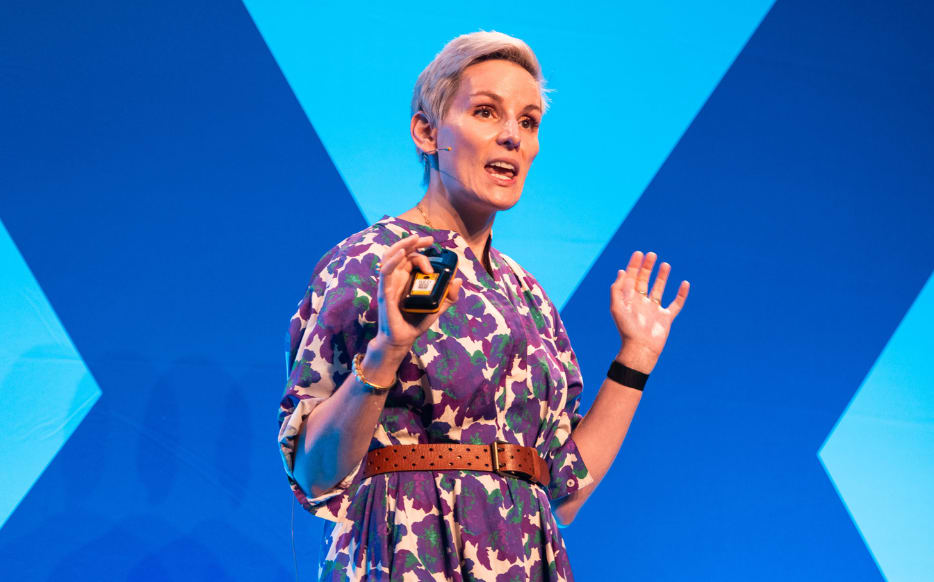You have 1 article left to read this month before you need to register a free LeadDev.com account.
Your inbox, upgraded.
Receive weekly engineering insights to level up your leadership approach.
Estimated reading time: 4 minutes
At LeadDev LDX3 2025, Christine Pinto reveals how chasing speed at the expense of quality creates hidden risks with massive consequences.
In a world that prizes speed above all, quality is often treated as a sacrifice.
In her LeadDev LDX3 2025 talk, The Million Dollar Bug, Christine Pinto – CTO and cofounder of Berlin-based tech startup Epic Test Quest – called out a common failure in modern engineering: treating quality as negotiable when deadlines loom.
“Speed without quality is tomorrow’s crisis arriving faster,” Pinto stated, having learned this the hard way back in 2012 when her team pushed last-minute marketing optimizations (promo code tracking, minor performance tweaks, etc) just before the marketing team pushed a primetime TV campaign out for a new product.
“We were told to go live without full regression testing. It would’ve taken two extra days – but the launch date was non-negotiable,” she said.
“Everyone thought we’d just fix any issues fast,’ Pinto said.
Within hours of launch, users were hitting critical bugs. Customer support was overwhelmed.
“The checkout flow failed silently for about 10–20% of users,” Pinto recalled, “especially on less-tested browsers or when lots of people were on the site at once.”
Customers were frustrated. Some couldn’t finish checkout. Others gave up entirely.
The TV campaign was projected to generate over €300,000 in revenue over a few days, but due to broken tracking, failed checkouts, and user drop-offs, an estimated €60,000 to €100,000 in revenue was lost, according to Pinto.
The impact was severe, but unsurprising to engineers.
“We all knew the risk but didn’t stop it,” said Pinto.
More like this
Poor leadership decisions are the problem
Despite knowing that rolling out features without performing the right tests would create technical problems, the team felt unable to speak up. The campaign was already paid for, the TV spot set, and influencer deals in motion.
“No one felt safe saying, ‘this might break,’” Pinto said. Lacking leadership support, QA was sidelined, engineers couldn’t frame concerns as business risks, and rollback wasn’t considered.
For Pinto, it wasn’t about lazy testing or bad code – it was about poor decision-making and misaligned incentives.
“Quality isn’t an individual problem. It’s a leadership one,” she stated.
She noticed that in many organizations, quality was seen as a gatekeeping function – or worse, a bottleneck.
“It gets framed as something that slows you down,” Pinto explained. “So when deadlines get tight, quality is the first thing to get squeezed.”
She added that companies often choose between quality and speed, but “that’s wrong.” Quality and speed can – and should – reinforce each other, not compete.
In the long run, “quality is what leads trust and speed to compound over time.”
“The fastest companies don’t choose between these two. They use quality to unlock their speed. Because the truth is: quality is speed,” she stated.
Chasing quick fixes undermines system health, creating compounding debt that’s rarely temporary.
“Companies who temporarily trade quality for speed – they never do that temporarily.”
In the long run, “quality is what leads trust and speed to compound over time.”
Pinto’s experience isn’t unique – in July 2024, CrowdStrike released a routine update to its Falcon platform, which quickly escalated into one of the most disruptive global outages in recent history. The event followed a routine update to its Falcon cybersecurity platform, which was deployed without a staged rollout or sufficient human oversight.
Pinto explained, “They weren’t risk-informed. And by the time failure was visible, it was already irreversible.”
Surfacing risk before the postmortem
For Pinto, preventing future failures meant changing how her teams worked – not just how they tested, but how they thought about risk. And this started with conversations where stakeholders made potential risks more visible for the rest of the team.
“We’d gather the team – engineers, quality assurance, product, sometimes support and ask: what could go wrong?”
These weren’t exhaustive reviews, but they highlighted problem areas. “And more importantly, they made it shared. Everyone contributed. No one was expected to have all the answers alone.”
As all the necessary players were informed on potential issues, when the team did ship and things went wrong, they weren’t blindsided. Pinto said, “We’d already had the conversation. That made the learning cycle faster and the response calmer.”
The other shift Pinto made was around how quality work was communicated up the chain. She started asking teams to frame quality conversations in terms of business impact.
“Instead of saying ‘our tests are flaky,’ we’d say, ‘this is causing us to delay releases by three days a month,’” she explained. “Instead of ‘we need to refactor,’ we’d say, ‘if this fails, we risk losing high-value customers.’”
That kind of framing changed the conversation. “You can’t assume quality matters to leadership if you’re not explaining what poor quality costs,” she said.
It also helped shift quality from being seen as “extra” work to being part of sustainable delivery. “Good tests don’t slow you down,” Pinto said. “They let you move faster, with less regret.”
“We didn’t hide mistakes. We used them to show what quality means,” she said.
Pinto led a key cultural shift by reframing failure, viewing bugs not as blame points but as valuable feedback, highlighting fragile systems and flawed assumptions.
After incidents, Pinto promoted a culture of learning by encouraging teams to share insights openly in Slack threads and demos, not just private retrospectives.
Million-dollar bug lessons
Looking back, Pinto doesn’t romanticize the failure that sparked her transformation, but she does see it as a turning point.
“You don’t need a million-dollar bug to start leading on quality,” she said. “But you do need to believe one is possible.”

London • June 2 & 3, 2026
LDX3 London prices rise March 4. Save up to £500 💸
Her key lesson for other leaders? Start earlier. Make risk visible. Make quality a team habit, not an individual task. And speak the language of outcomes, not just effort.
“Quality isn’t just something you test for,” Pinto said. “It’s something you lead for.”





